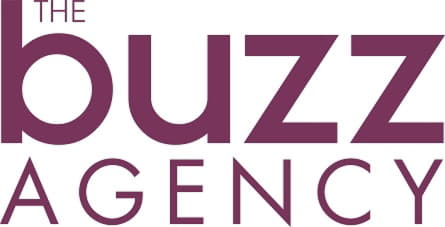
IMAGE SOURCE: DISNEY-ABC TELEVISION GROUP VIA FLICKR.
Arguably the oddest election of our times is now in the books. The voters have spoken, and the 45th president of the United States will be Donald Trump. This election was bound to be historic no matter who won, but it'll now be remembered as the point in history where Trump becomes the first person without any prior political or military background to ascend to the Oval Office.
However, the presidential election wasn't the only major decision voters made on Election Day. Residents in nine states also voted on whether to legalize marijuana, five of which were voting on a recreational-cannabis initiative. California is of particular importance for the pot industry, since it alone represents the eighth-largest GDP in the world. The thinking is that If the marijuana industry can successfully be regulated in California, it can presumably be regulated throughout the United States.
Pot could encounter a big change under President Trump
So what might the marijuana industry look like with Donald Trump as president?
While it's certainly up to a lot of interpretation at this point, since it's tough to predict what he and Congress may or may not do between now and January 2020, there would probably be one major change.
For those who may not have followed Trump's pledges and proposals on the campaign trail, one such suggestion made by the president-elect is that he would reschedule marijuana from its current illicit status as a Schedule 1 substance to perhaps Schedule 2 or lower. Schedule 1 substances are considered federally illegal and perceived to have no medical benefits, whereas Schedule 2 substances and lower are considered to have medical benefits but are also perceived to have addictive qualities.

IMAGE SOURCE: GETTY IMAGES.
According to Trump, he is "in favor of medical marijuana 100%."
Effectively legalizing medical cannabis at the national level would allow physicians the ability to write prescriptions for marijuana, and it would open the floodgates to medical research into pot, granting easier access to researchers, universities, and drug companies.
Keep in mind that cannabis and its cannabinoids have demonstrated early efficacy in glaucoma, Type 2 diabetes, cancer, and Alzheimer's disease studies, to name a few ailments. GW Pharmaceuticals (NASDAQ:GWPH), a primarily clinical-stage drug developer that's discovered about five dozen cannabinoids, is leading the way in medical marijuana research. Its CBD-based experimental drug, Epidiolex, produced a statistically significant reduction in seizures in two childhood onset types of epilepsy in phase 3 trials, paving the way for a potential approval by the Food and Drug Administration in the coming year.
The unintended consequence of Trump's pledge
However, Trump's move to decriminalize and legalize medical cannabis could also be a death knell for much of the medical pot industry. An unintended consequence of rescheduling marijuana at the federal level (the presumption here is that the federal government would move it to Schedule 2) is that it would effectively make cannabis a regulated drug. As such, it would come under the strict control of the U.S. Food and Drug Administration.

IMAGE SOURCE: GETTY IMAGES.
The FDA is a strict regulatory body that would be responsible for approving the marketing and packaging for medical-marijuana companies, and it could regularly inspect the manufacturing and processing facilities where marijuana is grown to ensure that certain standards are being adhered to. For example, the FDA could visit grow farms and processing plants to ensure that the THC content, the psychoactive component of marijuana, is consistent from one batch of product to the next.
Yet the most crippling aspect of a move to Schedule 2 is that the FDA could require medical-cannabis companies to prove via clinical trials that cannabis does exactly what is advertised. If marijuana is being prescribed as a treatment for glaucoma, then the FDA could require that clinical trials be run, based on its own strict parameters, to demonstrate that this is indeed the case. Clinical trials are expensive, and they can take a lot of time to generate results.
It's possible that Trump's plan of rescheduling marijuana could wind up crippling smaller medical-cannabis players that don't have the deep pocketbooks needed to weather these added regulatory costs, effectively handing over the industry to larger businesses that can better cope with potentially higher costs.
On the bright side, larger industry players could give investors who've been monitoring marijuana's exceptional growth rate a chance to participate. Right now, the industry is highly fragmented and dominated by smaller players. If a few larger companies began to emerge, investable and profitable opportunities may as well for investors.
There's still plenty of watching and waiting left to be done, but today's victory for Donald Trump could prove bittersweet to the medical-cannabis community.

IMAGE SOURCE: CANNABIS CULTURE VIA FLICKR.
Recreational cannabis: the status quo continues
When it comes to recreational marijuana, we're probably looking at more of the status quo. Trump has suggested that he would respect the rights of states to regulate their own marijuana industry, but he hasn't suggested that the federal government would move toward any recreational legalization efforts. Trump's "wait-and-see" approach is very much in play with recreational marijuana, with the legal states serving as ongoing social experiments for lawmakers to monitor in the meantime.
As long as recreational marijuana remains illegal at the federal level, pot businesses should continue dealing with a varying degree of benefits and disadvantages. Remaining illicit means smaller players still have a chance to thrive since bigger players are constrained by their ability to buy grow or retail licenses in just a handful of legal states. On the other hand, the recreational-marijuana industry is likely to remain constrained by approvals on an individual state basis, as well as the inherent tax and financing disadvantages of selling a federally illegal substance.
Will Trump's presidency turn over a new leaf for marijuana? Only time will tell.



















